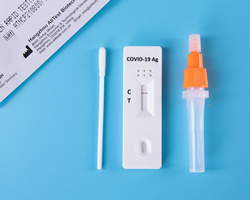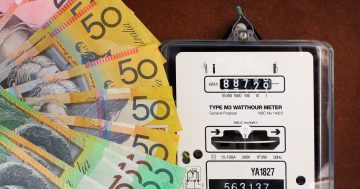 The Australian Competition and Consumer Commission (ACCC) is examining supplier and retailer claims that the high prices of rapid antigen tests (RATs) are due to challenges in obtaining supply.
The Australian Competition and Consumer Commission (ACCC) is examining supplier and retailer claims that the high prices of rapid antigen tests (RATs) are due to challenges in obtaining supply.
The Commission’s announcement preceded one from the Minister for Health and Aged Care, Greg Hunt on the introduction of measures to prevent price gouging and impose restrictions on the improper export of RATs.
Chair of the ACCC, Rod Sims said the Commission was aware of the significant public concern about the pricing of RATs and was contacting suppliers and monitoring the situation very closely.
“We are seeking information from suppliers about their costs and the current pricing of rapid antigen tests,” Mr Sims said.
“We are also asking them about their current stock levels, and the amounts on order, and about their expectations about when additional tests may become readily available to consumers,” he said.
“We are also contacting major retailers and pharmacies seeking similar information and reminding them that they need to be able to substantiate any claims they make to consumers about the reason for higher prices.”
Mr Sims said the ACCC had established a team to work on the issue.
Mr Hunt said measures under the Biosecurity Act 2015 had been introduced earlier this month to prohibit price gouging on RATs and would be in place until 17 February.
“These measures will prevent people who have purchased RATs at retail settings to on-sell them at extortionate prices, which is assessed at more than 120 per cent more than the price for which they were purchased,” Mr Hunt said.
“People found to be engaged in price gouging or unlawfully exporting RAT kits will be required to surrender those kits to law enforcement agencies or Customs officials for destruction or redistribution to the National Medical Stockpile as appropriate,” he said.
“Penalties for failing to comply with the new requirements include up to five years’ imprisonment, a fine of up to $66,600, or both.”
Mr Hunt said Government was also working with the pharmacy sector and major retailers to prevent hoarding and bolster the supply of RAT kits by limiting the number of tests people could buy at any one time.
Mr Sims said the ACCC had not sought, and did not need, more powers to deal with the current situation.











